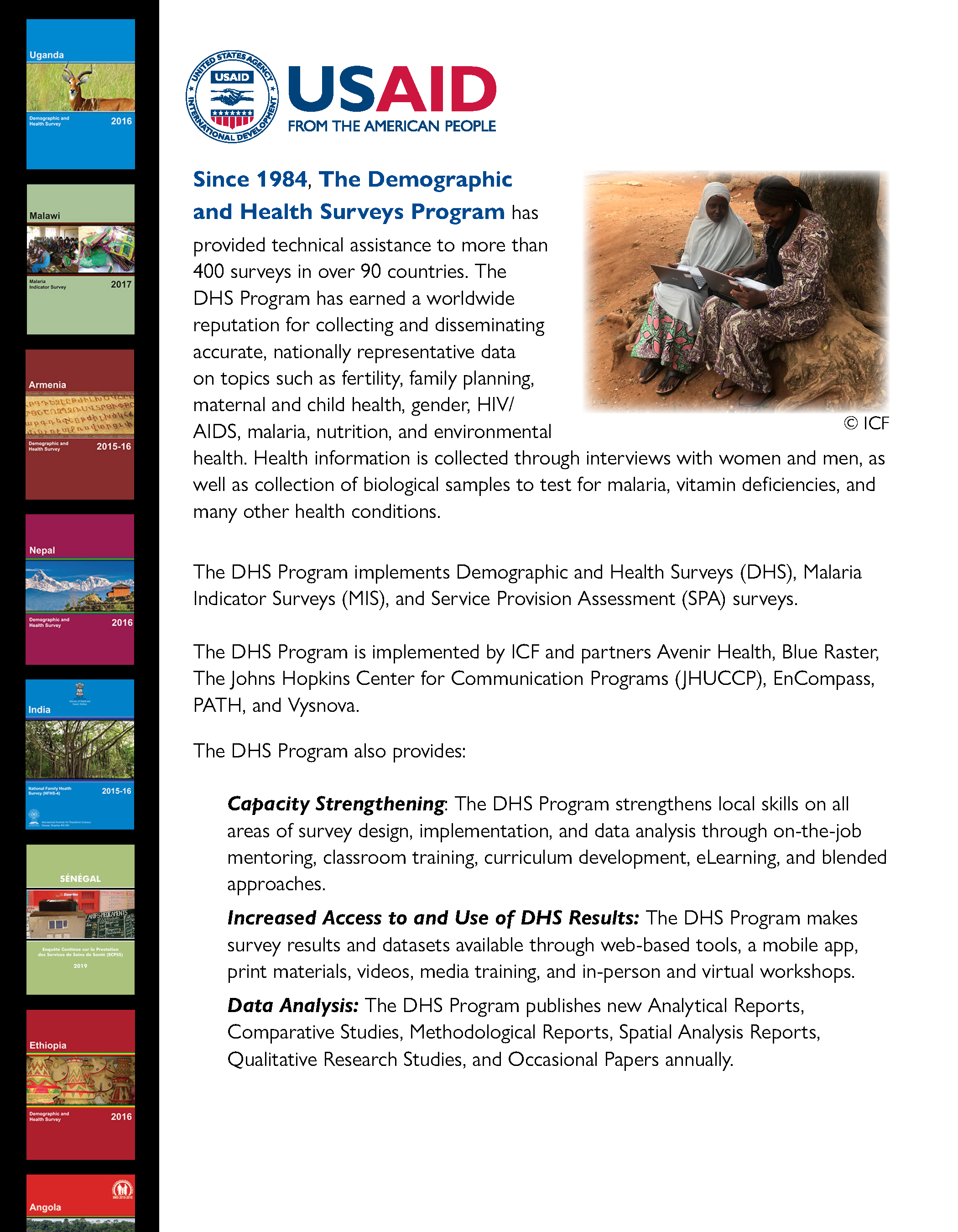Press Releases
"World AIDS Day 2006" - New data from MEASURE DHS
Calverton, MD. Twenty-five years after the discovery of the human immunodeficiency virus (HIV), millions of people in developing countries still do not understand how the virus is transmitted or how they can protect themselves from it. For the past five years, the Demographic and Health Surveys (DHS) project, with primary funding from the US Agency for International Development (USAID), has been collecting nationally representative data to better understand the dynamics of the epidemic in less developed countries.
The results from recent DHS underscore the complex challenges facing health ministries and international organizations as they struggle to stop the spread of HIV and its consequences.
- In Nepal, preliminary results show that more than 40% of women and 20% of men have not heard of HIV/AIDS.
- In Vietnam, 40% of women and 35% of men believe mosquitoes can transmit HIV.
- In Ethiopia, only 40% of women and 64% of men know condoms reduce the risk of getting HIV during sexual intercourse.
- In Zimbabwe, 50% of women and 30% of men did not use a condom the last time they had sexual intercourse with a partner they did not live with. Preliminary results show that 18% of adults in Zimbabwe are HIV positive.
- In Colombia, 40% of women believe that a person with HIV/AIDS can be fired from his or her job.
To better understand why millions of people are still contracting HIV, DHS scientists are analyzing data from multiple countries to identify factors that may contribute to a person’s chance of acquiring HIV. Research is ongoing on the potential effects of wealth, circumcision, number of sexual partners, knowledge of prevention methods, and prevalence of other sexually transmitted infections. Most recent DHS surveys also include estimates of HIV prevalence.
In countries like Tanzania, DHS staff is using Geographic Information Systems (GIS) to help plan the location of HIV prevention and care programs. Researchers use GIS to map where HIV positive people live in relation to health care services, national borders, major highways, and trucking routes. This detailed picture contributes to a better understanding of the epidemic, and how to slow its spread.
Currently, MEASURE DHS has more than 20 surveys underway in Africa and Asia that will provide new information about HIV/AIDS. Reports from 16 countries have already been produced that report on HIV prevalence. In early 2007, DHS will release new HIV/AIDS prevalence figures for India, Cambodia, Haiti and the Ivory Coast. Mr. Martin Vaessen, Project Director DHS, and Dr. Bernard Barrere, HIV/AIDS Coordinator for the DHS project, are available for interviews about DHS surveys.
DHS reports, fact sheets, and data sets can be downloaded free of charge from the DHS Measure website. Researchers worldwide analyze DHS data to help develop effective health policies and projects.
